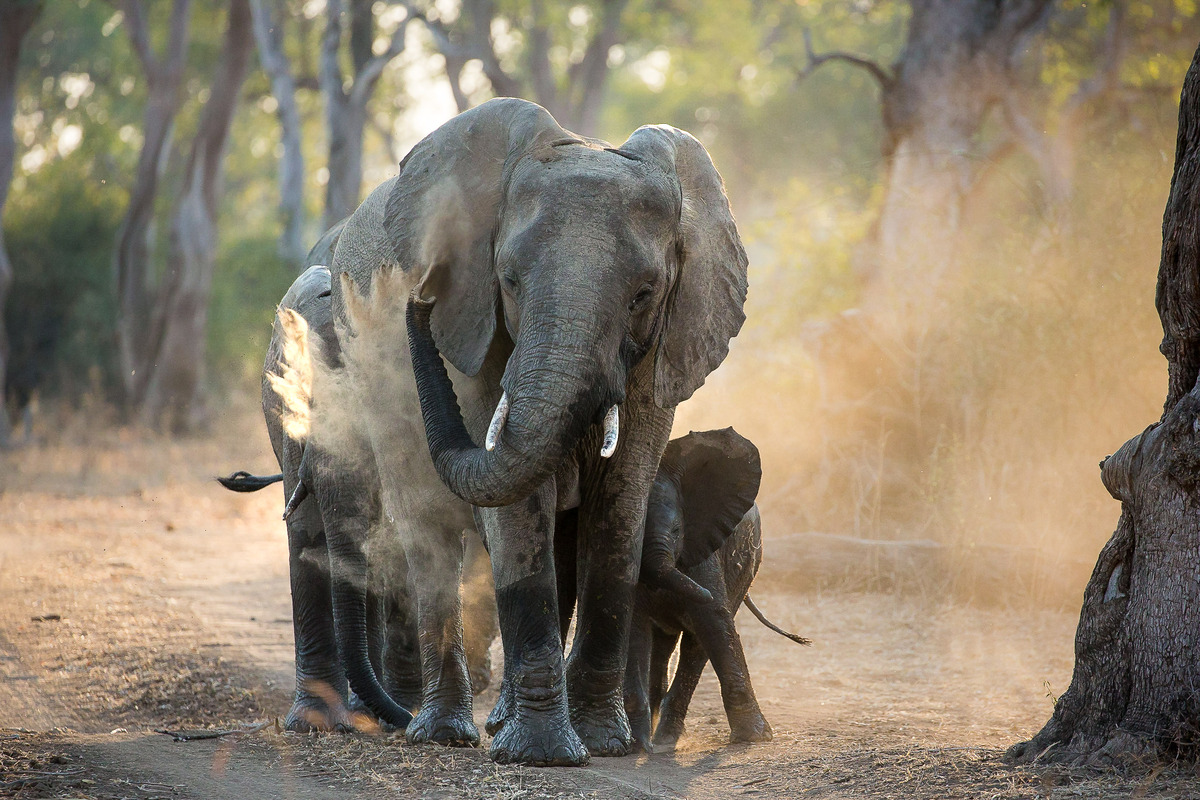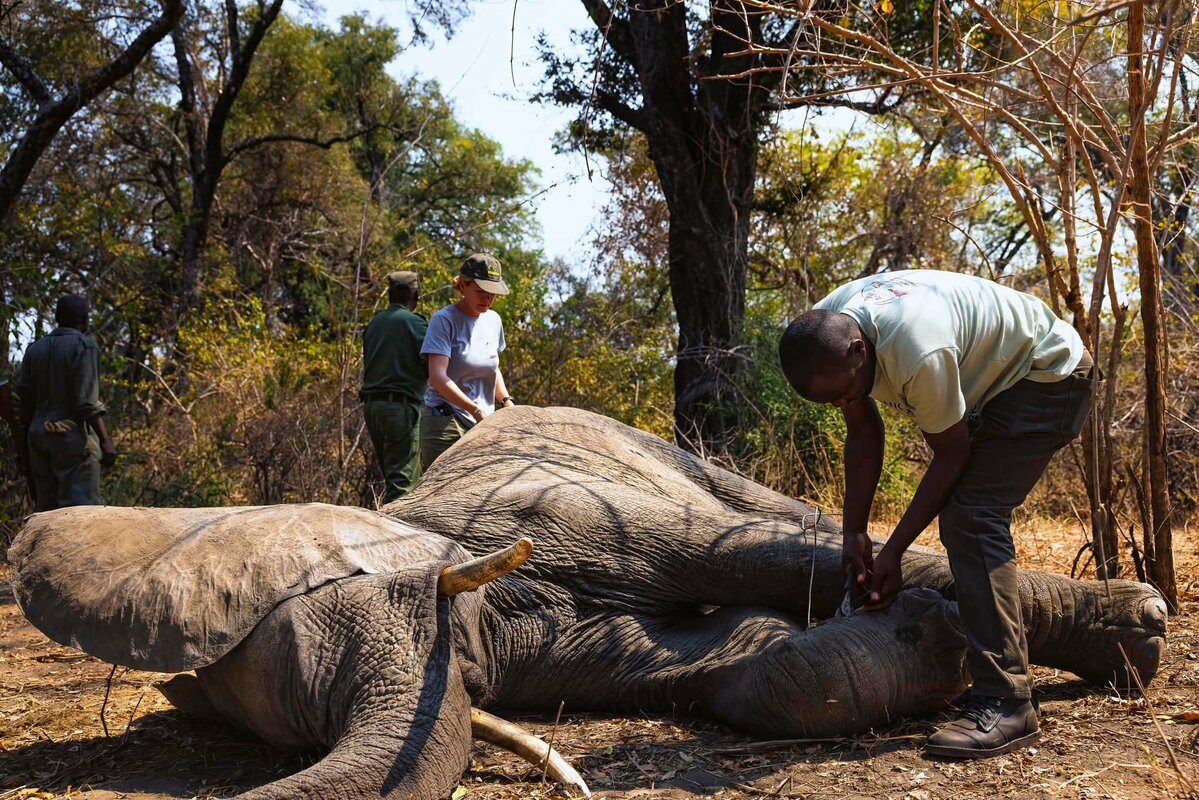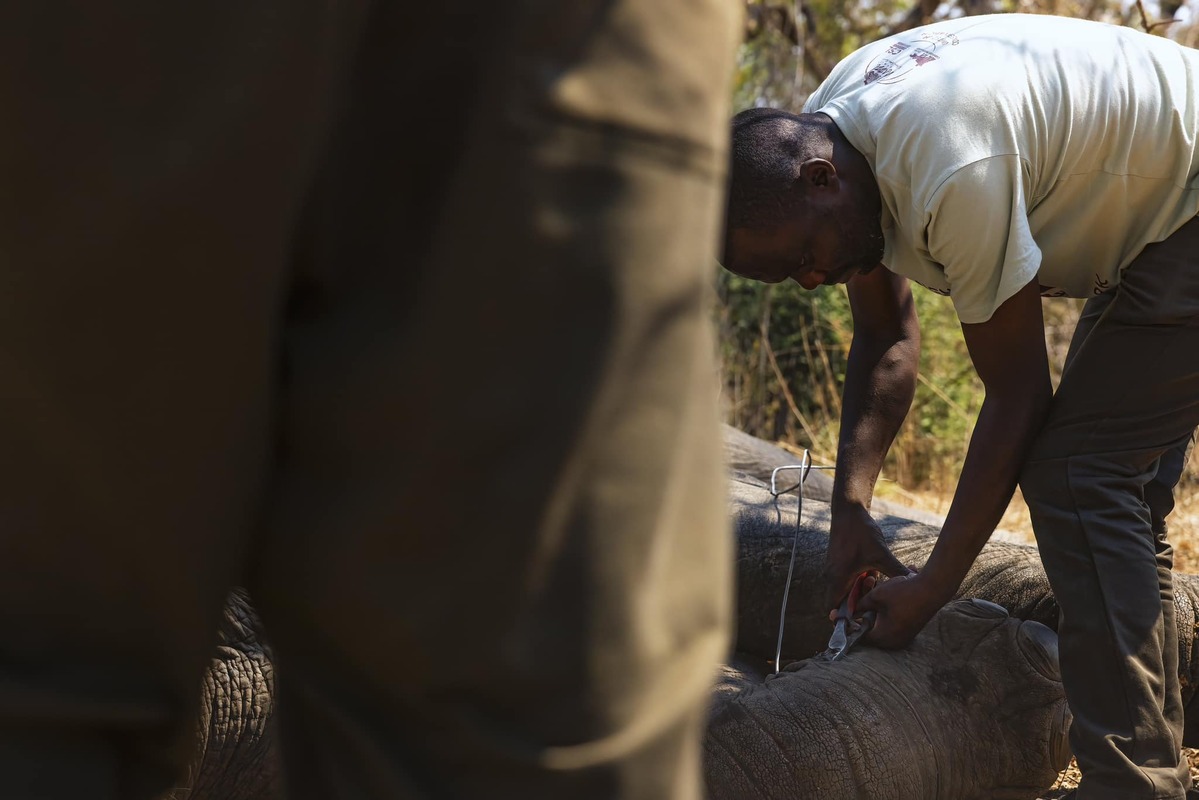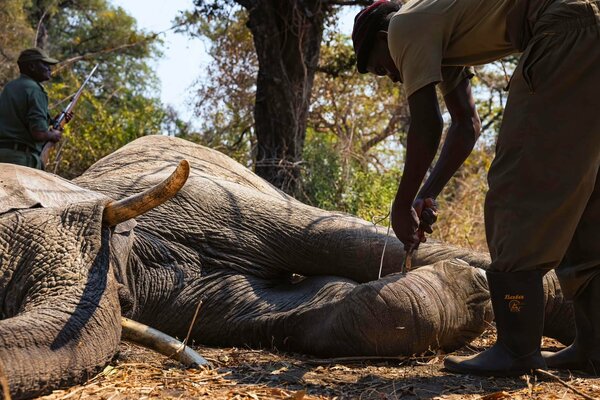
It is the dry winter season across Southern Africa. The cool dry stretches from April/May to July with the hot dry from August to October.
Animals gather along the river bank and at lagoons to quench their thirst and vegetation thins out.
For visitors this is a wonderful time to be on safari offering good visibilty, low humidity, dry sunny days and fabulous wildlife sightings.
Throughout October, temperatures steadily rise before the onset of the early rains, usually arriving in November/December, a prelude to the long rains from January to March. The rains revive the landscape and turn everything jewel green again.
As the dry season progresses, the bush becomes increasingly accessible, and snaring typically increases.
In Zambia's South Luangwa, anti-snaring patrols, including 'community clean sweeps' along with the vigilance of rangers, safari guides and other members of the community are vitally important at this time of year.
Although snares are set to catch antelope for food, other wildlife is at risk of injury (or even death) if caught in a snare. Snares are indiscriminate and can result in really horrific injuries in a very short time as the animal struggles to free itself. Already this year there have been lion and giraffe rescued from snares.
Elephant Rescue
The wildlife rescue team working together with the Department of National Parks & Wildlife (DNPW) and Zambian Carnvivore Programme (ZCP) quickly came to the assistance of a snared bull elephant in a Game Management Area near Luangwa River Camp just last week.
Daudi Njobvu, Manager of Luangwa River Camp (Robin Pope Safaris) reported the injured elephant. This emphasises the important relationship between tourism and conservation. The eyes and ears of safari guides, staff and guests are a great tool in protecting the Luangwa Valley.
The bull was with several large herds, numbering as many as 30 other elephants so it took a bit of patience to isolate him in a good location where the team could attend to his injuries.
The wire snare had not cut into his skin yet, but it was bothering him, and he was holding up the snare with his trunk to avoid stepping on it.
Thankfully the team were able to work quickly and remove the snare, with the elephant making a full recovery.
>>To find out more about our project partnership with Conservation South Luangwa, to support Community Clean Sweeps and Wildlife Rescue please visit our Project page.
To find out more about safaris to Zambia, including the South Luangwa please click here.
Images: Michael Davy and CSL team Stephanie Fernandes



